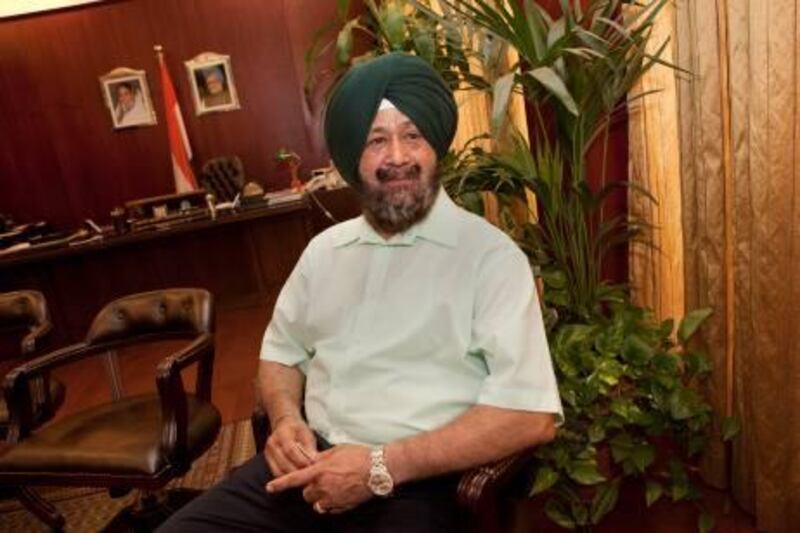DUBAI // The family representative of a man who was murdered last year in a fight over alcohol bootlegging signed pardon papers in the Sharjah Appeals court yesterday, waiving the death penalty against 17 found guilty of killing the Pakistani in exchange for nearly Dh3.4million in blood money.
Negotiators on behalf of the convicted men deposited the remainder of the unusually high diyyah payment with the court's treasury - a move that will help the 17 men escape death.
The payment set the stage for the final curtain to fall in a saga that has lasted more than two years and generated numerous court appearances.
The court will hand down a final prison sentence on September 12. The defence asked during yesterday's hearing that the death penalty be dropped and that the court considers the 31 months the defendants have already spent in prison as enough punishment.
Yesterday, the court received an official waiver from the family relinquishing Al Qasas rights - a Sharia provision that allows the relatives of murder victims to demand the death penalty, which they can waive by forgiving those convicted of the crime. The latter option is often exercised in exchange for blood money.
The men were found guilty in March 2010 of beating to death Misri Nazir Khan in the Saaja industrial area of Sharjah in January 2009.
"The money will be sent to the family directly by the court in September after the verdict," said Mohammed Ramzan, the representative of the victim's family. "We have let the family know that [the court] has received the money."
The payment replaces a Dh442,000 diyyah offer that the family had previously rejected. The family accepted the Dh3.4m offer last week.
"We are glad that our struggle to save them has paid off," said Mr SP Singh, an Indian hotelier and philanthropist who contributed more than 50 per cent of the blood money. The rest of the money was raised with the help of three other Indian businessmen in the Emirates.
"The families [of the 17] rang us after the hearing, and some of them broke down, knowing that the sentence had been overturned," said Mr Singh, who has previously helped secure the release of other men from Punjab who had been convicted of bootlegging.
He said this was one of the highest settlements he had paid.
However, the London-based human rights activist Ansar Burney, who is in Dubai to help free the crew of the hijacked ship MV Iceberg I, yesterday criticised the diyyah amount.
"It is shameful that this much money has been paid," said Mr Burney, who was one of the first activists to pledge legal and moral support to help free the men.
Even as the 17 convicted men await their September verdict, one of the men who claimed he was injured in the bootlegging brawl, Mushtaq Ahmed, said he would file a civil case over his injuries.
"I will file a civil case seeking compensation," said Mr Ahmed, a scrap dealer who was present when Mr Khan was killed in the brawl.
"I have found it difficult to work because of my injuries," he told reporters after the court hearing.
"I will file it on behalf of the other two men, who have also been injured."
Mr Burney said he would try to convince Mr Khan's family to pay a part of the compensation money from the Dh3.4m to the injured men.
In a press statement, the Indian consulate in Dubai said: "The government of India, keeping in mind the interests of the accused and recognising and respecting the local judicial processes and practices, had no objection to the compromise established by the Indian community today in the Sharjah Appeals Court."
* With additional reporting by Salam Al Amir






